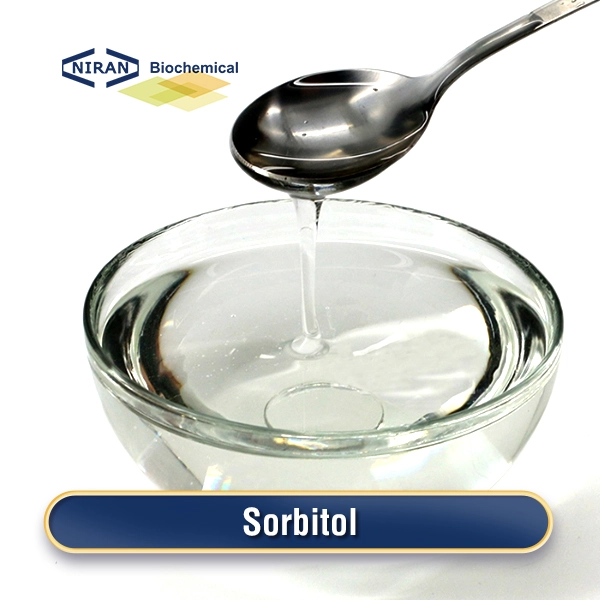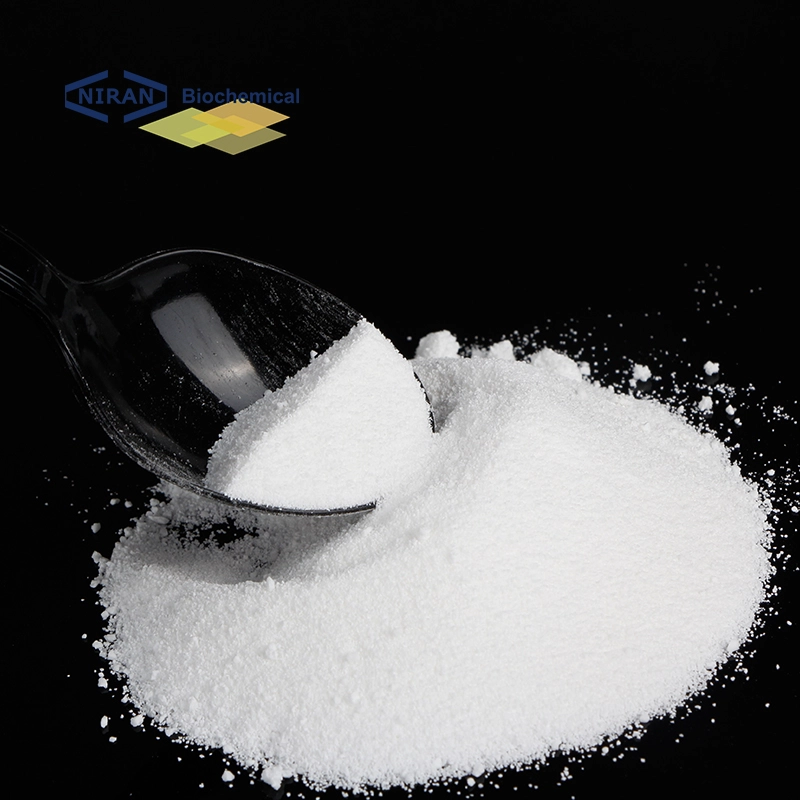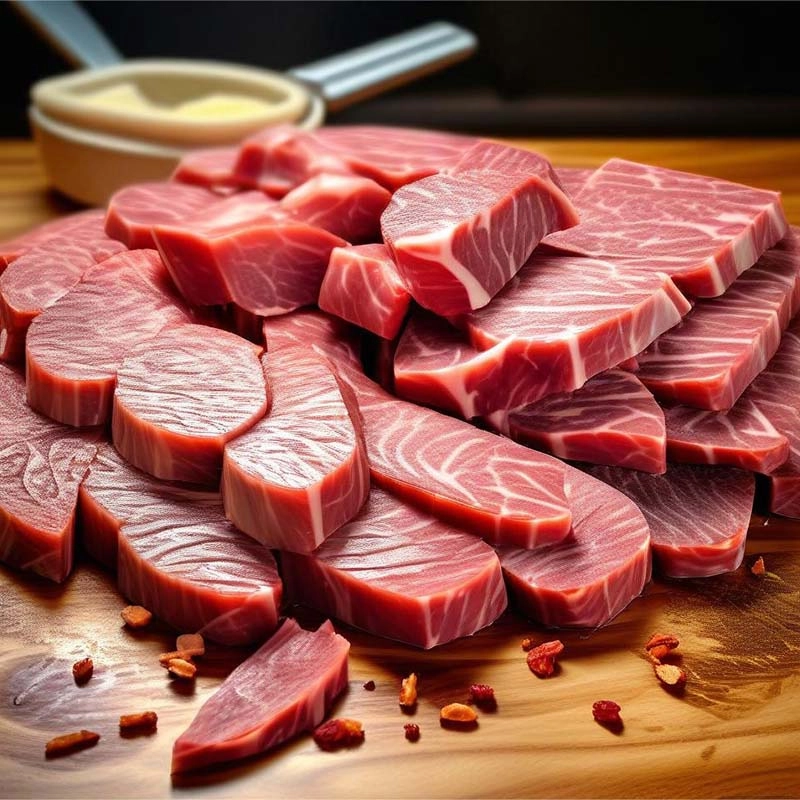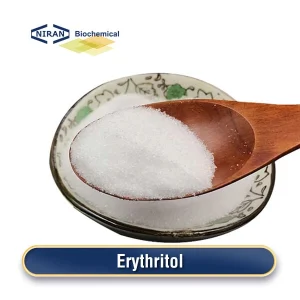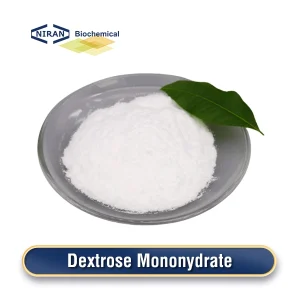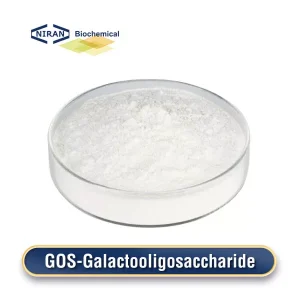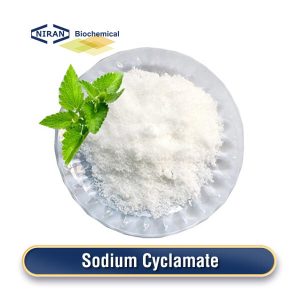What is Sorbitol?
Sorbitol is a white crystalline powder, odorless, with a refreshing sweet taste. Its sweetness is about 50%-70% of sucrose. It is widely distributed in natural plant fruits and is often used in food as a sweetener, bulking agent and moisturizer.
Sorbitol is currently produced primarily by two methods: chemical synthesis and biological fermentation. The chemical synthesis method uses glucose as raw material and synthesizes sorbitol through a series of chemical reactions. The cost-effectiveness of this method is offset by the possibility of dangerous compounds being produced by the reaction.
The biological fermentation method uses glucose as raw material and produces sorbitol through microbial fermentation. The advantages of this method are environmental protection and high product purity, but the cost is relatively high.
Related parameters:
| ITEMS | SPECIFICATION |
| Sorbitol content,w/% | ≥98.0 |
| Water,w/% | ≤1.0 |
| Reducing Sugar,w/% | ≤0.15 |
| Total Sugar,w/% | ≤1.0 |
| Residue on lgnition, w/% | ≤0.1 |
| Sulphate(as SO42- )/(ppm) | ≤100 |
| Chloride(as Cl-)/(ppm) | ≤50 |
Recommended dosage
| Food name | Maximum usage(g/kg) |
| Dairy products | 0.5 g/kg |
| Cheese | 0.3 g/kg |
| Yogurt | 0.5 g/kg |
| Fruit drinks | 0.5 g/kg |
| Carbonated drinks | 0.3 g/kg |
| Canned food | 0.5 g/kg |
| Candy | 1.0 g/kg |
| Bread | 0.5 g/kg |
| Bakery products | 0.5 g/kg |
| Sauces | 0.3 g/kg |
| Meat products | 0.5 g/kg |
| Fish products | 0.4 g/kg |
| Chocolate and chocolate products | 0.4 g/kg |
Sorbitol has a wide range of uses
1. Food industry: Sorbitol is mainly used as a sweetener, humectant, excipient and preservative in the food industry. Its hygroscopicity helps keep food moist and fresh by preventing it from drying out. Using sorbitol in bread and cakes has obvious effects. Furthermore, sorbitol is an essential raw ingredient for making low-sugar sweets, snacks, and sugar-free candies because it is less sweet than sucrose and is not utilized by some bacteria. Additionally, it can prolong food’s shelf life, process a variety of anti-carry meals, and significantly stabilize and preserve fish paste over time.
2. Pharmaceutical industry: Sorbitol is used as a nutritional sweetener in the pharmaceutical industry, with the effects of dehydration and diuresis, appetite enhancement, weight control, and laxative effects. It can increase blood volume, reduce intracranial pressure, and reduce interstitial edema. It is often used to treat dysuria caused by heart disease or kidney disease, as well as cerebral edema, glaucoma and other diseases. The metabolic process of sorbitol does not require the participation of insulin, and has little effect on blood sugar. Diabetics can use it as a food sweetener and nutritional supplement.
3. Daily chemical industry: Sorbitol is mainly used as a moisture absorbent and water-retaining agent in the daily chemical industry. It can be used in daily necessities such as toothpaste and cosmetics to make them contain a certain amount of moisture and maintain the consistency and comfort of the product.
4. Aquatic product processing: Sorbitol is widely used in aquatic products and their products as a water activity reducer, biological preservative and antifreeze agent. By reducing the water activity, the storage period of aquatic products can be effectively extended to maintain their quality.
User asked question:
Q: Does sorbitol have any health effects?
A: Sorbitol is a low-calorie sweetener widely used in food, medicine and cosmetics and is generally considered safe. It does not cause tooth decay and has a low impact on blood sugar, making it an ideal choice for people with diabetes.
However, excessive intake of sorbitol may cause diarrhea, bloating and gastrointestinal discomfort because it is fermented by bacteria in the large intestine to produce gas and water. Sorbitol allergies are exceedingly rare, yet they can happen to some people. Overall, sorbitol is safe for most people, but people with sensitive stomachs should consume it in moderation to avoid adverse reactions.
Q: Is sorbitol a sugar or a sweetener?
A: Sorbitol is a sugar alcohol sweetener. Although it has the word “sugar” in its name, it is actually a sugar alcohol and belongs to the category of sweeteners. Sugar alcohol sweeteners are similar to sugars in molecular structure, but because they contain one or more hydroxyl groups, they are called “sugar alcohols.”

